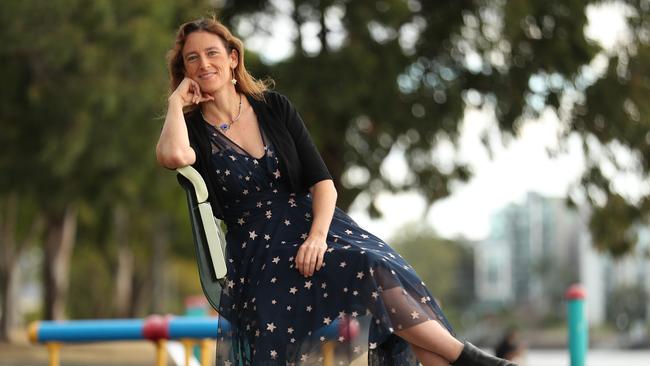Queen’s birthday honours: astrophysicist Tamara Davis puts her victories down to sport
It says a lot about Tamara Davis that one of her chosen pastimes is ultimate frisbee, for which she has represented Australia

It says a lot about Tamara Davis that one of her chosen pastimes is the sport of ultimate frisbee, for which she has represented Australia.
The Brisbane astrophysicist could never be accused of living up to the stereotype of a white-coated scientist interested only in figures and calculations.
Her parents made sure she pursued a healthy lifestyle full of sport and activity to balance her intense interest in physics.
“Sport tells you about leadership and competitiveness and intensity, which are all qualities that you need for a successful career in science,” she said.
Professor Davis has been appointed a Member of the Order of Australia in this year’s Queen’s Birthday honours for her service to astrophysical science, education and young astronomers.
Her research into dark energy, black holes and supernovas is as groundbreaking as her achievements in ultimate frisbee, a sport that combines elements of netball and football and is played in more than 30 countries.
She confessed to being “stunned” when she was told of the award and pleased, given it will help her achieve the goal of ensuring as many people as possible “understand and respect science”.
It is a challenge this self-described “extreme introvert” has tried to pursue in many ways, including appearances as guest presenter on the ABC’s science program Catalyst. She was also the voice of a virtual spaceship looking at life on other planets in a recent documentary title Living Universe. The film lets viewers explore the cosmos, including beneath the clouds of exoplanets, about as far from the dull picture of physics research as it is possible to get.
In her career, Professor Davis has measured time-dilation in distant supernovas, helped make one of the largest maps of the distribution of galaxies in the universe, and is now measuring how supermassive black holes have grown over the last 12 billion years.
As only the second female professor of physics in the University of Queensland’s history, she has also made sure to use her profile to encourage more women to participate in the sciences.
“It’s like fighting an uphill battle but it’s something you got to actively pursue as it (the under-representation of women in physics) is not something that generational change will fix,” she said.



To join the conversation, please log in. Don't have an account? Register
Join the conversation, you are commenting as Logout